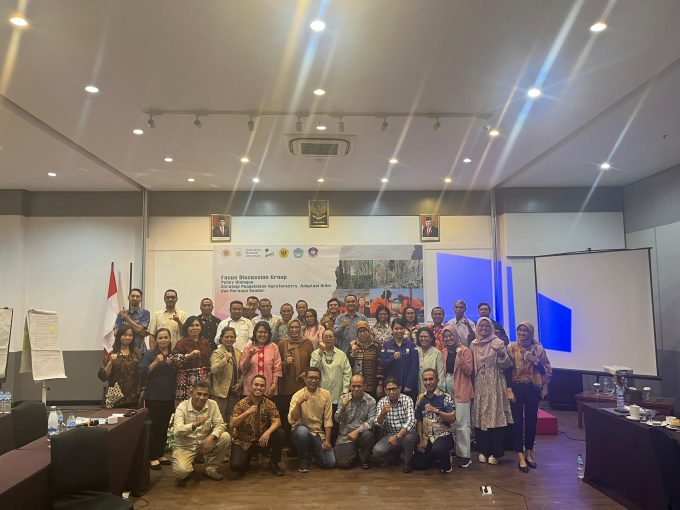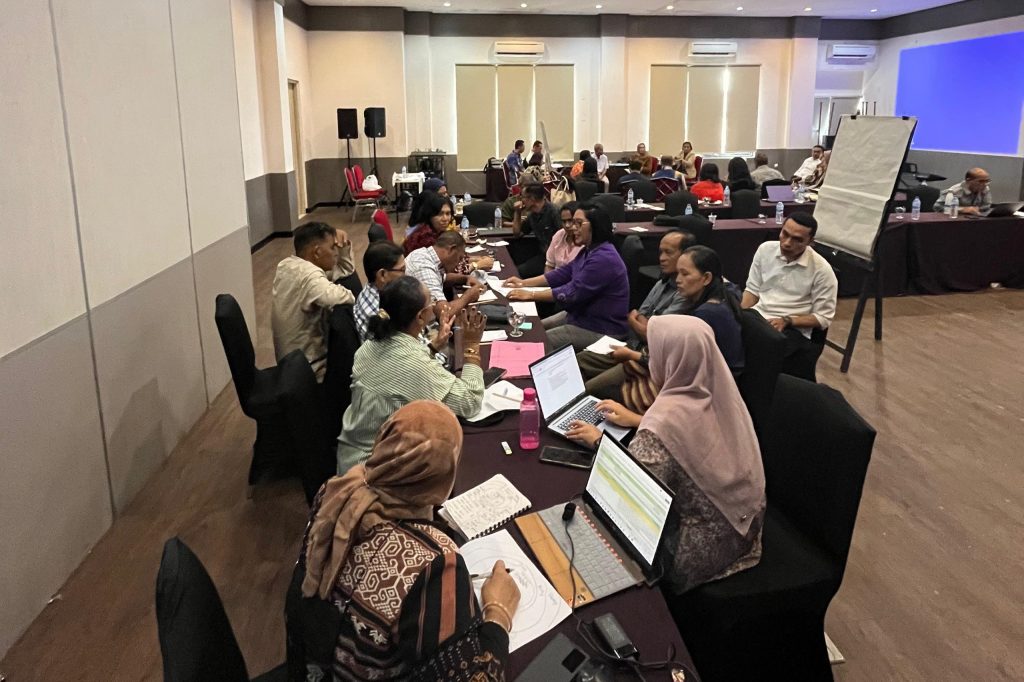
The impact of climate change is being felt by vulnerable communities on small islands in eastern Indonesia, including rising sea levels, extreme weather, droughts, floods, landslides, and other natural disasters that affect their livelihoods. To address these issues, agroforestry systems are one strategy that has been proven to enhance the socio-ecological resilience of communities in mitigating the impacts of climate change. However, the integration of gender aspects into agroforestry systems is still very limited in research.
KONEKSI is a project led by Sebijak Institute in collaboration with local universities (Universitas Pattimura, Universitas Kristen Artha Wacana, and Universitas Mataram) and international research institutions (CIFOR and Australian research institutions). The project is funded by the Australian Department of Foreign Affairs and Trade (DFAT) through a KONEKSI Grant of AUD 350,000.
The dissemination of the research results from this project is conducted in a hybrid format at Manise Hotel in Ambon and online via Zoom Meeting on 30th of May 2024. The event was opened with a speech by the Head of the UGM Research Team, Prof. Dr. Ahmad Maryudi, who emphasized that this research aims to promote climate-related policies that can enhance the socio-ecological resilience of vulnerable communities on small islands in Indonesia by utilizing gender-responsive agroforestry best practices. This event was also promoted by Prof. Dr. Ir. A. E. Pattiselanno, M.Si, Dean of the Faculty of Agriculture at UNPATTI, noted that this collaboration is a significant step forward.
The main session was led by Dr. Anton A. Lailossa, ST, M.Si. from BAPPEDA Maluku Province delivered the keynote address, highlighting the importance of climate adaptation policies. Continuing the session, Prof. Dr. Ahmad Maryudi also introduced the KONEKSI project and presented general findings from the three research locations in Maluku Province, West Nusa Tenggara, and East Nusa Tenggara. This research focuses on the livelihoods resilience of forest-dependent communities and the role of women in this context.
Prof. Dr. Agus Kastanya presented the research findings on efforts to promote climate socio-ecological resilience and livelihoods based on watershed areas in Nusalaut Island, Central Maluku Regency, Maluku Province. The presentation received various responses from participants, including suggestions to develop strategies and policies that support integrated management from upstream to downstream and add value to local products such as nutmeg, cloves, and kenari nuts.
A talk show on policies and programs related to climate adaptation, agroforestry, and gender featured representatives from the Maluku Provincial Forestry Office, Maluku Provincial Environmental Office, Maluku Provincial Office for Women’s Empowerment and Child Protection, Maluku Provincial Office for Community Empowerment, and the Climate Change and Forest and Land Fire Control Center for Maluku and Papua. Key points from the talk show included the hope that Nalahia and Abubu villages could become examples in the climate village program (ProKlim) and the importance of a gender approach in climate adaptation and mitigation.
The introduction of Climate Smart Agroforestry (CSAF) by Prof. Dr. Agus Kastanya highlighted the relevance of this research in the context of climate change and agroforestry. Focus Group Discussions (FGD) were conducted on climate adaptation, agroforestry, and policy topics, with each group presenting their discussion results. This FGD aims to produce a proposed scenario of forest management by collaborating and taking into account the results of the discussions.

